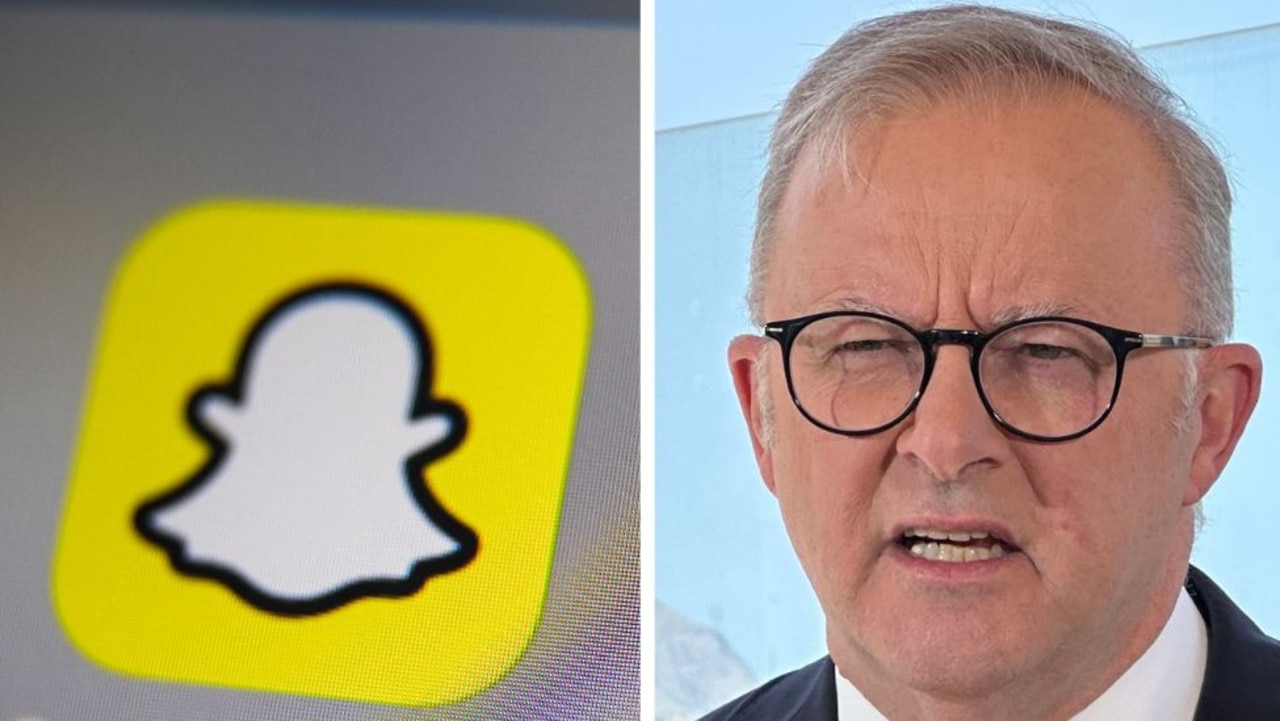Google search engine alternatives Bing and DuckDuckGo soar
An annoying video Google has promoted in search has backfired on the tech giant, with Aussies now turning to other engines to get their results.
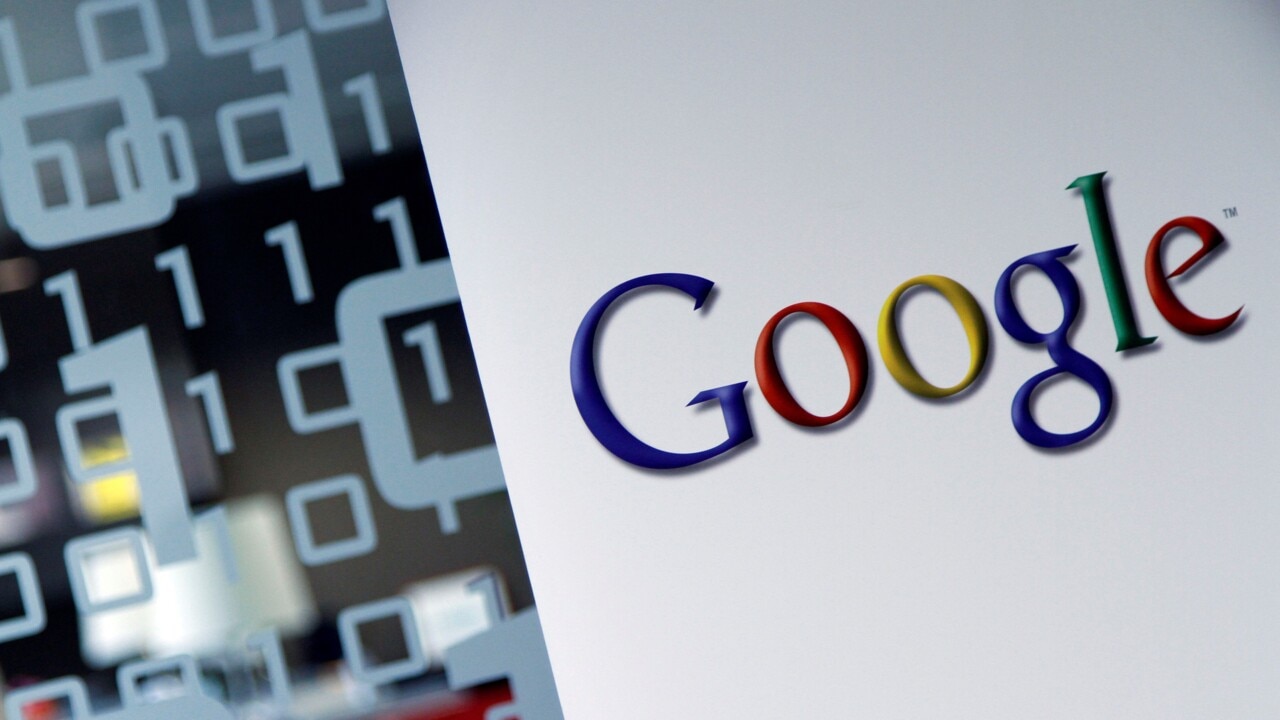
Online
Don't miss out on the headlines from Online. Followed categories will be added to My News.
Search engines have come a long way since the days of Ask Jeeves.
While Google has dominated the market, other major players are becoming increasingly popular in the wake of the tech giant’s threats to remove its search engine from Australia.
If you haven’t been following, Google is fighting proposed legislation which will force big tech companies like it to pay for Australian news content.
But it seems a new video warning people about the news media bargaining code and what it will do to Google Search has backfired, with its own search results showing a massive 400 per cent increase in people looking for alternatives in the last 24 hours. People are also searching DuckDuckGo and Bing.
Comments on Google’s video include, “I am off to Bing!!”, “Me, a bing user watches this video: (starts dancing around the room) oh yeah, uh huh”, and “I think I’ll just use duck duck go now. Thanks google”.

Someone summed up most people’s views by saying, “Thanks for spamming this on every google search. Given me a compelling reason to try other search engines”, with many clicking on the notification in a wasted attempt to get it to go away.
Many pointed out how you can get such different search results using different engines.
“Yeah, let’s not break those carefully SEO’d results, that’d be a shame,” said one person, highlighting Google’s Search Engine Optimisation which helps a site’s visibility to search engines.
“Google takes the top spot in their own search results for every single search, how's that a fair and level playing field?,” questioned another user.
Google features content prominently in its carousel while other engines have different approaches.
A search for current topics such as border restrictions, US politics and Sydney weather forecast all look very different.

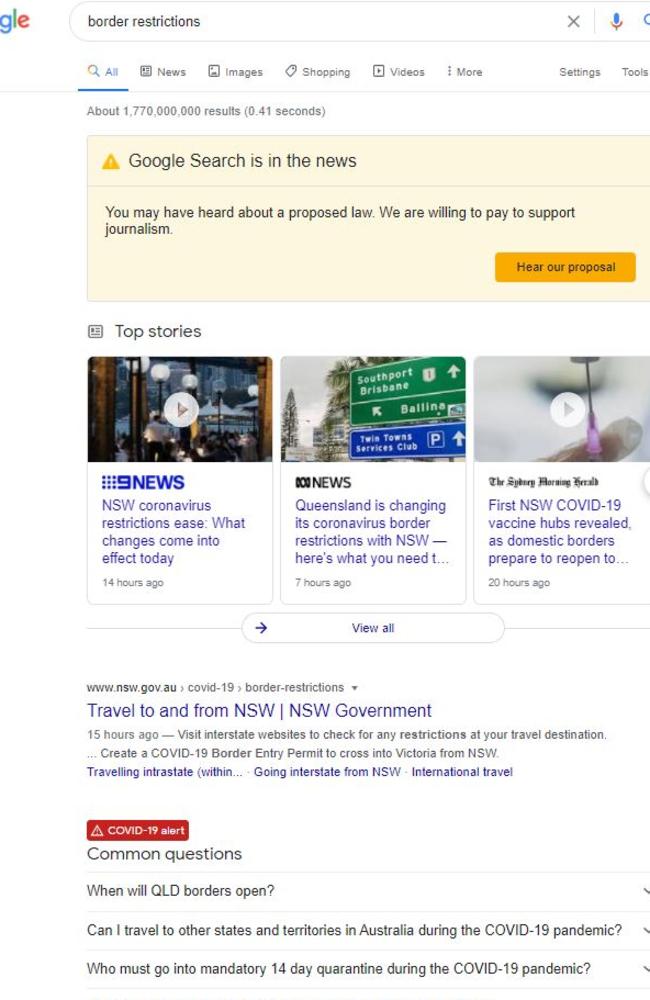
DuckDuckGo, founded by Gabriel Weinberg in 2008, emphasises protecting a searcher’s privacy and avoiding personalised results.
Its supporters say a switch had them “sold on a post-Google future” because with most people searching basic terms, you don’t then get hit with a bunch of irrelevant results that come about through tracking.
DuckDuckGo does not store IP addresses or user information and its search results aren’t littered with Google products and services – boxes and carousels to try and persuade people to spend more time in Google’s family of apps.
RELATED: Google’s cringey ‘coffee shop’ comparison



Bing is owned by Microsoft and was launched in 2009.
Google has nearly 95 per cent market search in Australia’s search engine ecosystem.
Bing has less than 4 per cent of the market but has been flagged as a possible fallback option if Google follows through on its threat.
Microsoft so far says it is staying out of the news media bargaining code war. It says it’s “not directly involved” in the code, whereas Google and Facebook are specifically named.
Funnily enough when you search ‘best search engine’ in Bing, you get an ad for DuckDuckGo in the second spot and a ‘Google Premier Partner’ ad first.
Further down it instructs you how to ‘View or Change default search engine in the new Microsoft Edge’.
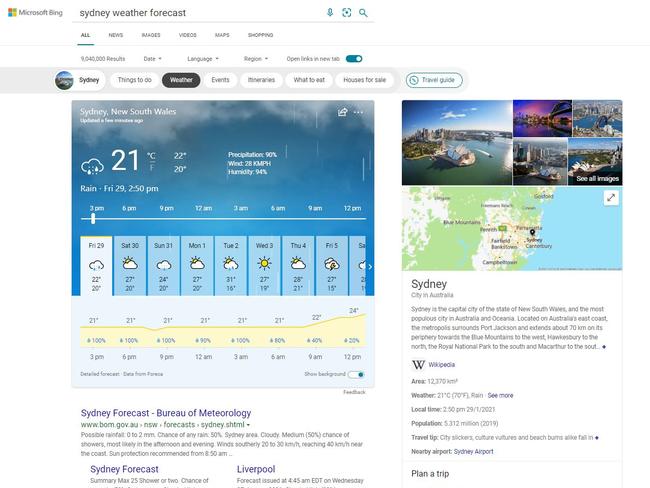

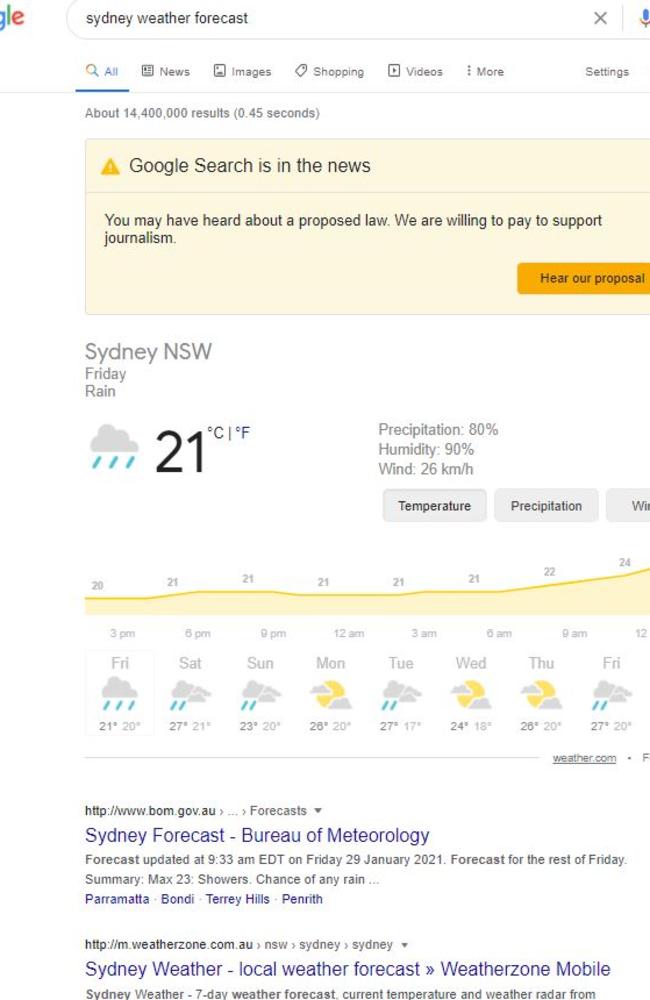
The difficulty is, searching for the best search engine advice yields all kinds of different results depending which you use, and some of them are outdated.
Experts say it’s ultimately up to the user to determine their best experience, what’s most useful to them and what they’re comfortable with.
Originally published as Google search engine alternatives Bing and DuckDuckGo soar


